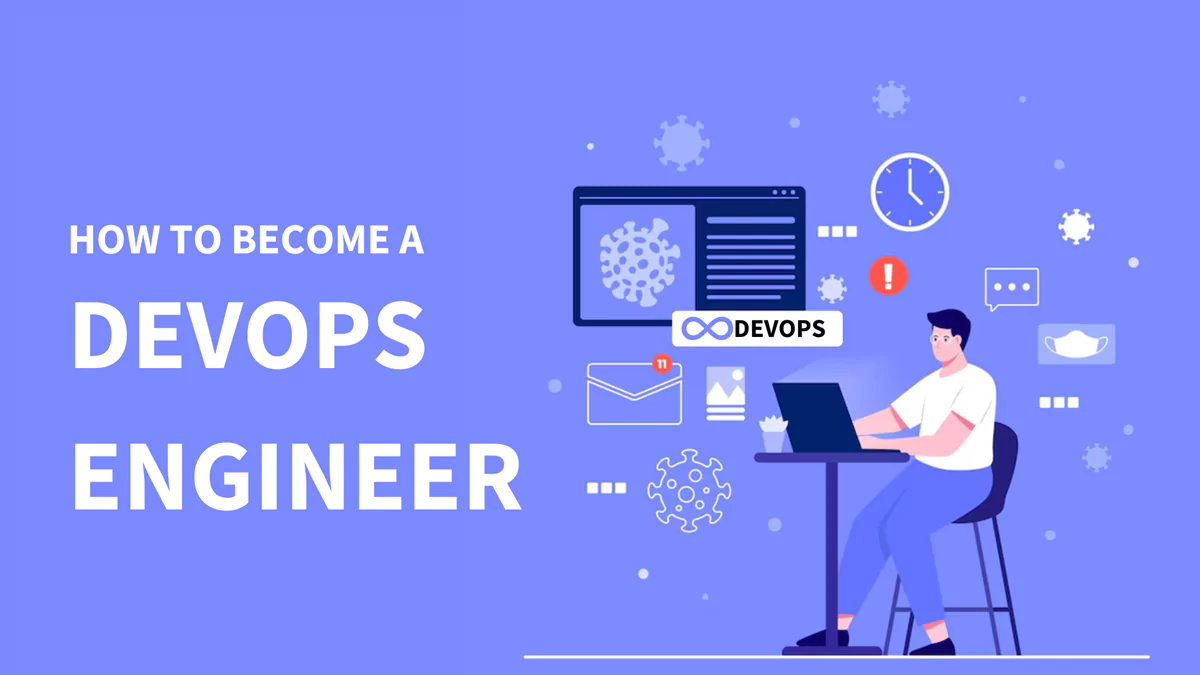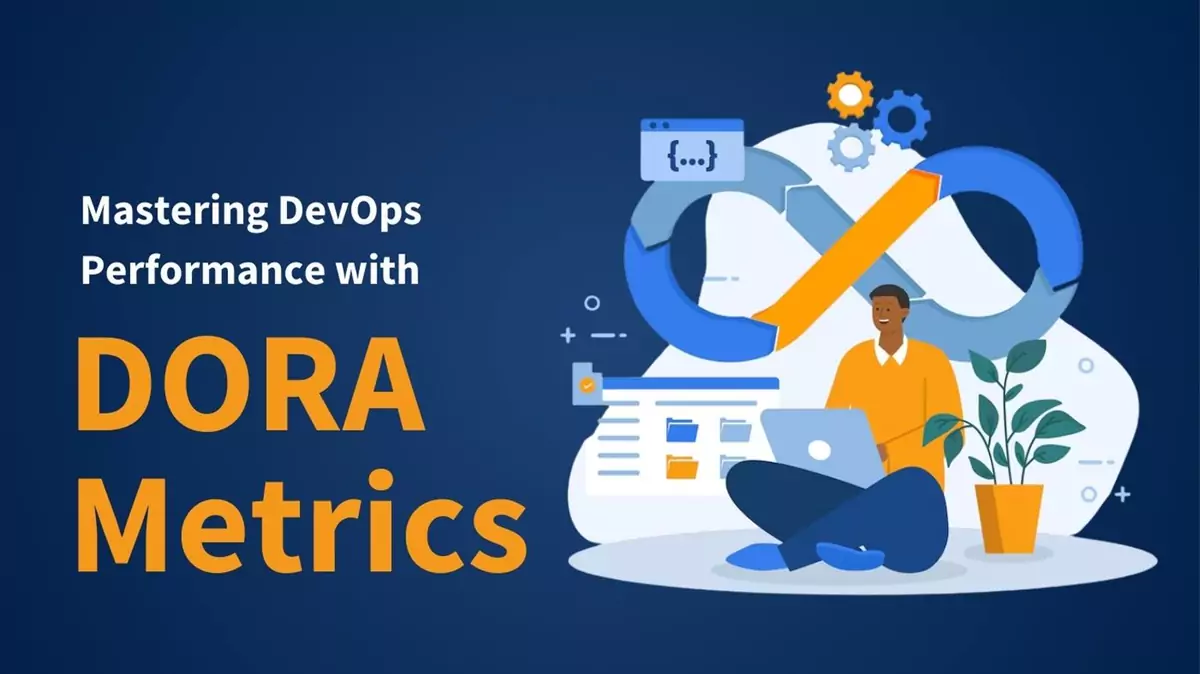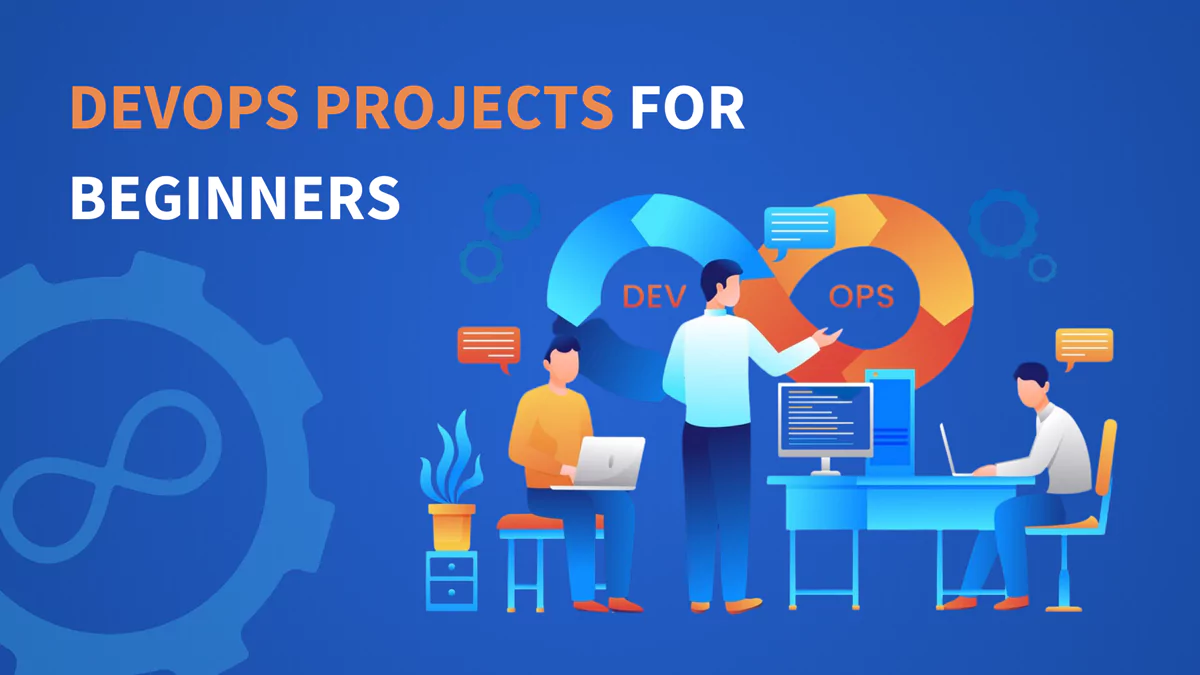In this era, everyone, and everything is connected or linked to technology in one or another way. The development requires many codes and software to be integrated and modified. DevOps is a combination of two words, Development and Operations.
A DevOps Engineer develops a company’s codes, infrastructure, and testing systems. They have wide knowledge of coding, software system development, and operational techniques as well as they know Developmental and operational tools.
As the field is recently developing the questions arise in the minds of enthusiasts and learners ‘How to become a DevOps Engineer’ Now let’s see the answer to the question.
Roadmap to DevOps Engineer
Firstly, to become a DevOps engineer, one should graduate either in Engineering related to software and computers or with a Bachelor of Computer Applications. Well, you don’t need to have a technical background for this role.
- After graduation, individuals should work on various skills developments and certification courses related to Developmental and operational techniques like Linux, Shell Scripting, and Version Controls (Git).
- The certifications that are well-known in the field of DevOps are AWS Certified DevOps Engineer, Azure DevOps Engineer Expert, Certified Kubernetes Administrator (CKA) Certified Junior Cloud Engineer (CJCE), etc.
- Once done with the basics the person should gain adequate knowledge about the subject and gain proper experience by working in various workshops, internships, and attending seminars.
- After gaining knowledge and experience the next step is to research the companies which are searching for proper DevOps experts.
- Once, a suitable and proper company is found the person can apply to the company, followed by interviews (if selected), and thereby showcasing the skills and knowledge in the interview helps in getting a job as a DevOps engineer.
- After joining a company person should gain more and more skills and experience which after a certain time (depending on the person’s skills) allows the person to become a DevOps Engineer.
What to Learned to Become a DevOps Engineer?
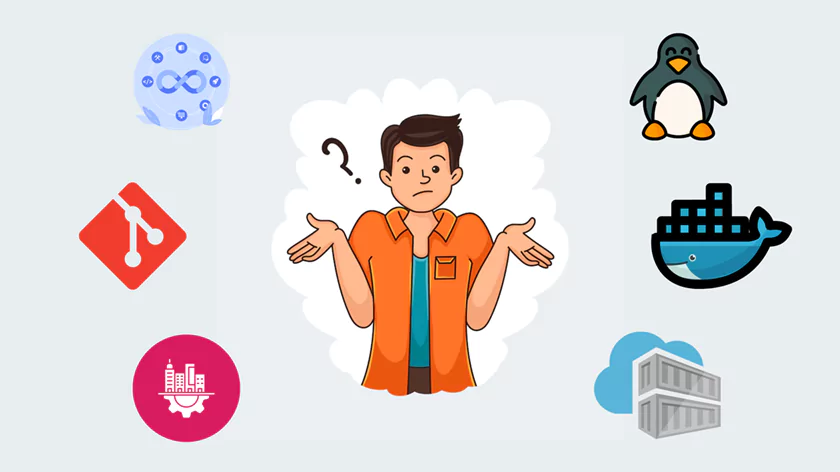
- The basics of the computer are a must thing as we all are aware.
- Adequate knowledge about computer technology and technical developments taking place should be known which helps to upgrade skills and takes us to a professional level.
- Proper training and information about coding, and software infrastructure development also play a pivotal role.
- Learning scripting languages like Python, Java, JavaScript, PowerShell (For Windows), etc. which are the oxygen for the field should be thoroughly learned.
- For the expertise, one should understand Software Development Life Cycles (SDLCs), HTTP, HTTPS protocols, and APIs.
- Thoroughly learning the Version Control Systems (VCS) like GIT, Concurrent Versions Systems (CVS), Apache sub-version, Mercurial, AWS, etc. plays a significant role.
- Expertise in Infrastructure as Code(IaC) principles and tools like Terraform, Pulumi, AWS Cloud formation (Specified for AWS Cloud), Azure Resource Manager (ARM) (Specified for Azure Cloud), and Google Cloud Deployment Manager (Specified for Google Cloud) is required.
- Mainly and most importantly to build a strong knowledge base for yourself individual should put their focus on the fundamentals of Linux operating systems.
- Awareness about tools used for Configuration Management like Ansible & Puppet and for Containerization purposes Docker plays a vital role. Puppet and Ansible allow and support the efficient and flexible resolution of issues with configuring servers. Docker helps developers to maintain and package application and their dependencies in an isolated container.
- Knowledge about Agile and DevOps methodologies is also helpful.
Skills You Need to Become a DevOps Engineer
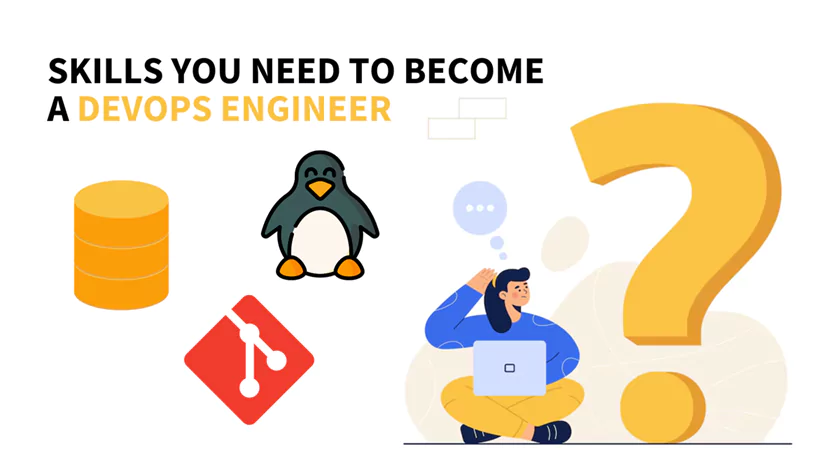
- Basic problem-solving skills: To analyze and handle difficult situations during debugging and deployment. One must be ready to stay patient in case of Manual testing and deployment where it is labor intensive, tool integration from different domains is time-consuming, Tools and technology selection should be done with appropriate knowledge and one must be ready to explain the situation to the co-workers when they lack knowledge about a certain topic in all the previously mentioned situations problem-solving skills play a vital role.
- Communication skills: This helps to communicate with the other team members and efficiently execute the plan.
- Technical Expertise: Expertise in programming languages like Shell Scripting, Python & Go (used for automation), Understanding of Version Control Systems like Git (for maintaining the code to repositories), Build tool understanding like Maven (primarily used for Java projects), Understanding of Continuous Integration & Continuous Delivery/Deployment (CI/CD), Configuration Management tools like Ansible/Chef/Puppet, Understanding of Cloud services and different cloud providers, Containerization (Docker) and Container Orchestration tools like Kubernetes are some of the most important tools required by DevOps.
- Cloud Platforms: Knowledge about cloud Platforms like Amazon Web Services (AWS), Google Cloud Platform (GCP), Microsoft Azure, IBM Cloud, etc. helps to understand the infrastructure, provisioning, and integration of DevOps tools. IBM Continuous Delivery is a cloud service that helps provision toolchains, automate builds and tests, and control quality with analytics provided by IBM Cloud. Google Kubernetes Engine (GKE) is a service provided by Google; GKE is a Kubernetes open-source container Orchestration platform.
- Fundamentals of Linux: Thorough knowledge about Linux and its fundamentals is pivotal in Server management, Containerization (Basically the technology that packs applications with their dependencies into a unit{container}), and many other things.
- Creativity: The more creativity the more the reach to the audience the more the gain and success.
- Farsightedness: The person must be able to understand the trends and needs currently needed and should ensure that whatever is created shouldn’t be out of focus in a short timeframe. A long vision about the future is a must skill to stay on trend. Learners should be ready to adapt to the evolving fields and trends in the field of DevOps.
- Analytics (Basically about troubleshooting): DevOps Engineer should have excellent analytical skills which majorly makes him/her understand the process of coding, bugging, and debugging. As the subject and topics in this field are technical and are more of understanding rather than mugging up this skill is pivotal.
- Database management: This is pivotal as the codes and operations developed cannot be just left out they should be stored as the proper data which can be done when there is adequate knowledge about database management. The commonly used technologies for Database Management are MySQL, Oracle, MongoDB, Liquibase, etc.
- Continuous learning: A person cannot be an expert in any field; having a mindset of learning continuously from experiences is the most pivotal skill in any field. To stay updated and gain more insights about the field one should follow resources found on search engines, news, and YouTube and also attend conferences, and workshops, join communities, and learn courses in the trend.
Also Read: Mastering DevOps Performance with DORA’s Key Metrics
Conclusion
Becoming a DevOps Engineer requires interest, passion, perseverance, and knowledge about various fields like coding, programming, security, database management, debugging techniques, IaC principles, Fundamentals of Linux, and many more. It is a time-consuming process as the other fields. Graduation is a must to become a DevOps Engineer. Certifications from various standard companies help in building a career as a DevOps Engineer.
